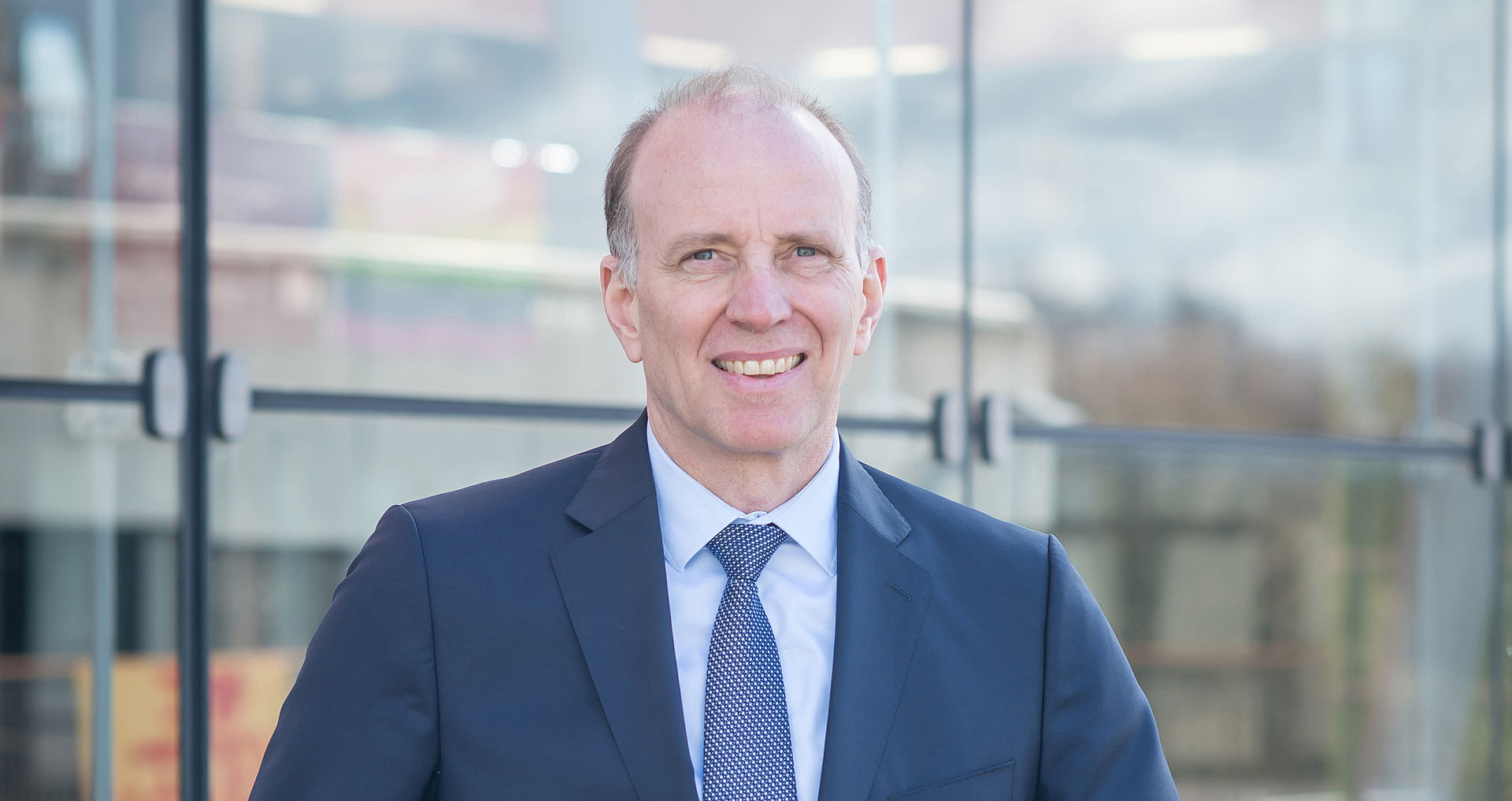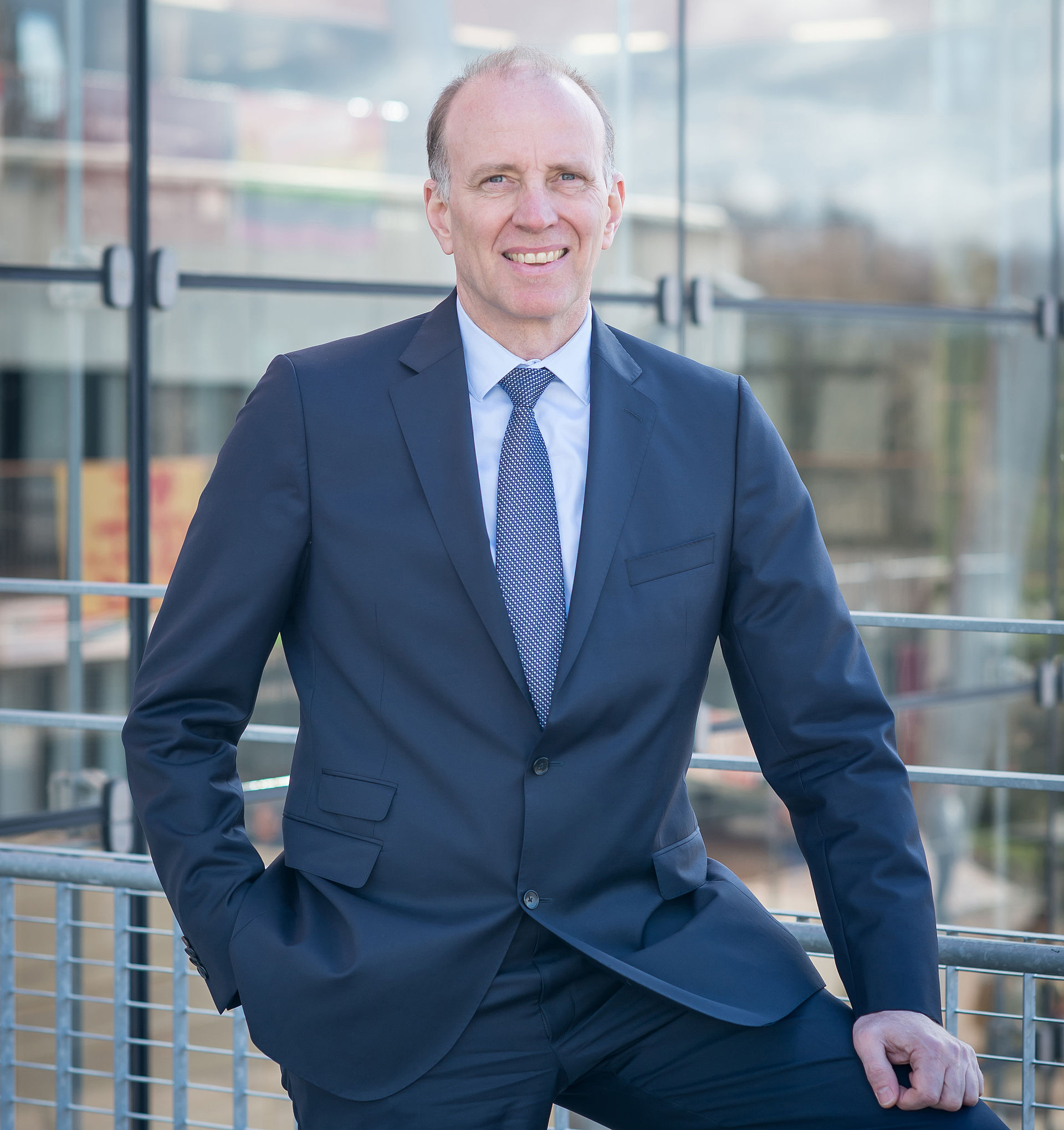May 28, 2020. People's greatest desire at the moment is a "return to normality". What normality actually means by definition (in sociology, normality is defined as the self-evident in a society that is no longer explained and does not need to be decided upon) is, in my view, not so important, the core of the demand is that we want to go back to where we were before the pandemic. And for many of our fellow human beings it is not at all about how, but rather when. But shouldn't we rather consider what the new normal will look like? And which of what we now perceive as abnormal might be the better normal in the end?
On Tuesday of this week, we would have welcomed around 450 OHB shareholders to the annual general meeting in the "old normality" in Bremen. Corona, however, has turned the usual meeting with our esteemed shareholders into the first virtual annual general meeting in OHB's history. I admit that I found this very hard to get used to. Of course, I too have been trained and practiced in video conferencing, telephone switching and know almost every common application for virtual meetings over the past few weeks. Particularly in the case of internal meetings with OHB employees, I frequently see that the change in thinking towards digital meetings does not entail any loss of efficiency; on the contrary, it means that we have a better exchange of information particularly when it comes to topics which affect more than one location. However, the Annual General Meeting has a different quality: I am happy to meet the shareholders once a year, many of our shareholders have been with us from day one of the IPO, and we can also see from very many of them that they feel very close to the Company. I therefore very much hope that we will be able to welcome our shareholders in person again in 2021.
No flights in 10 weeks
Normally, I would probably have taken the first flight from Bremen to one of OHB's locations or to ESA in Paris or Brussels at 6:00 a.m. on the day after the annual general meeting for appointments and meetings. In the past ten weeks, I have not flown once or twice and have only been on business outside Bremen once or twice. And on these occasions, I drove by car - on largely empty roads. Until the beginning of March, I was usually in the office no more than twice a week, but now I regularly spend five days there. I can take the time to deal with other important issues in the company in more detail. There are no more business trips, there are no more events, not during the day, not in the evening. Never before in my life have I had dinner at home so often.
Incidentally, for OHB this means that we are saving around EUR 500,000 a month in travel expenses, a not inconsiderable amount. Of course, we will resume our travel activities at OHB, but I predict that it will become a new normality to retain many of the proven digital formats and thus to travel considerably less for business purposes - and I believe that this will not only apply to OHB but to business travel as a whole. The impact on the travel and mobility industry and the other sectors of the economy directly and indirectly linked to it is considerable: airports are losing customers and, above all, travelers. Without landing and take-off fees, they lack the income and thus the liquidity to pay salaries. Retailers at airports also lose customers, and are therefore no longer able to pay their rents and, in the worst case, close down their stores. The airlines no longer fly, so they no longer have any income either, their employees are put on short-time work or, in the worst case, have to be laid off. But because the airlines also no longer need aircraft, they withdraw orders, which in turn affects the aviation industry. There the game is repeated on the employee side. This is, of course, the worst-case scenario, but from today's perspective we must nevertheless assume that there will be a new normality in business travel.
Move to localisation in the world economy
In the course of the past few weeks, I have also realised how strongly networked and therefore vulnerable the global economy has become. Particularly in industrialized series production, companies are dependent on a smoothly functioning supply chain. If unforeseeable events occur, such as a pandemic at present, production is at risk. I therefore already believe that we will see deglobalization in some areas of the economy. There will be industries that will no longer globalize as unreflectedly as before. I could imagine, for example, that the pharmaceutical industry would be one of the first sectors of the economy to make such considerations
There will be industries that will no longer globalize as unreflectedly as before. I could imagine, for example, that the pharmaceutical industry would be one of the first sectors of the economy to make such considerations. It has proved to be a disadvantage that Europe was and still is dependent on supplies from Asia for protective clothing and masks as a result of globalisation.
Europe will have to make a strategic assessment of the capabilities that must be maintained in the Union and of the conditions under which they must be provided. There will be areas which, in order to have them available promptly and with direct access, will have to be subsidised or even completely state-run. Although the Federal Republic of Germany's entry into Lufthansa has other reasons, the move makes it clear that there are infrastructures that need to be protected and preserved, and space travel is one of them. That is why it is good and important that, with Galileo and Copernicus, we already have good European space programmes that have a high strategic value and make Europe independent of others. Independent European access to space is also an important component of a strategic and technologically oriented European Union.
A next milestone in by Space X
In the normal situation before Corona, I would probably be on my way back from Florida now, because I would probably not have missed the opportunity to be there in person at a milestone in the history of space travel: on 27 May, a SpaceX Falcon 9 rocket with two NASA astronauts was to leave for the International Space Station ISS for the first time - the launch had to be postponed until 30 May due to bad weather. But then it went smoothly. I watched the launch on the internet via livestream. After about 20 hours of flight the "Crew Dragon" arrived at the ISS and the space capsule docked as planned. It was the first time since 2011 that astronauts flew to the ISS from American soil again. And the transport was handled by a private company commissioned by NASA, about which many in the industry laughed a good 15 years ago.
Just last week, while rummaging through the archives, I found the programme of the 2003 International Space Congress IAC, which was held in Bremen at the time. It was there that Hans Koenigsmann, chief engineer at SpaceX, presented the plans for the Falcon 9 rocket for the first time on an international scale. Today, SpaceX is the world's leading company for rocket launches and has taken a huge step in the development of private space companies by promoting astronauts. And when I look at the whole process, the design of the capsule and the suits, I see a completely new approach. Where earlier cockpits of space shuttles and capsules contained more than 1000 switches and buttons, the SpaceX capsule only contains touch screens - the Crew Dragon is basically designed like a Tesla. I am very happy for the SpaceX team. Not only because I know some of the leaders there personally, but also because Elon Musk has once again proven that his company SpaceX is revolutionizing space technology. Not only because of his ingenious marketing campaigns, but also because of an undeniably better and more efficient technology.
Personal details:
Born in 1962, Marco Fuchs studied law in Berlin, Hamburg and New York. He worked as an attorney in New York and Frankfurt am Main from 1992 to 1995. In 1995, he joined OHB, the company that his parents had built up. He has been Chief Executive Officer of OHB SE since 2000 and of OHB System AG since 2011. Marco Fuchs is married and has two children.


